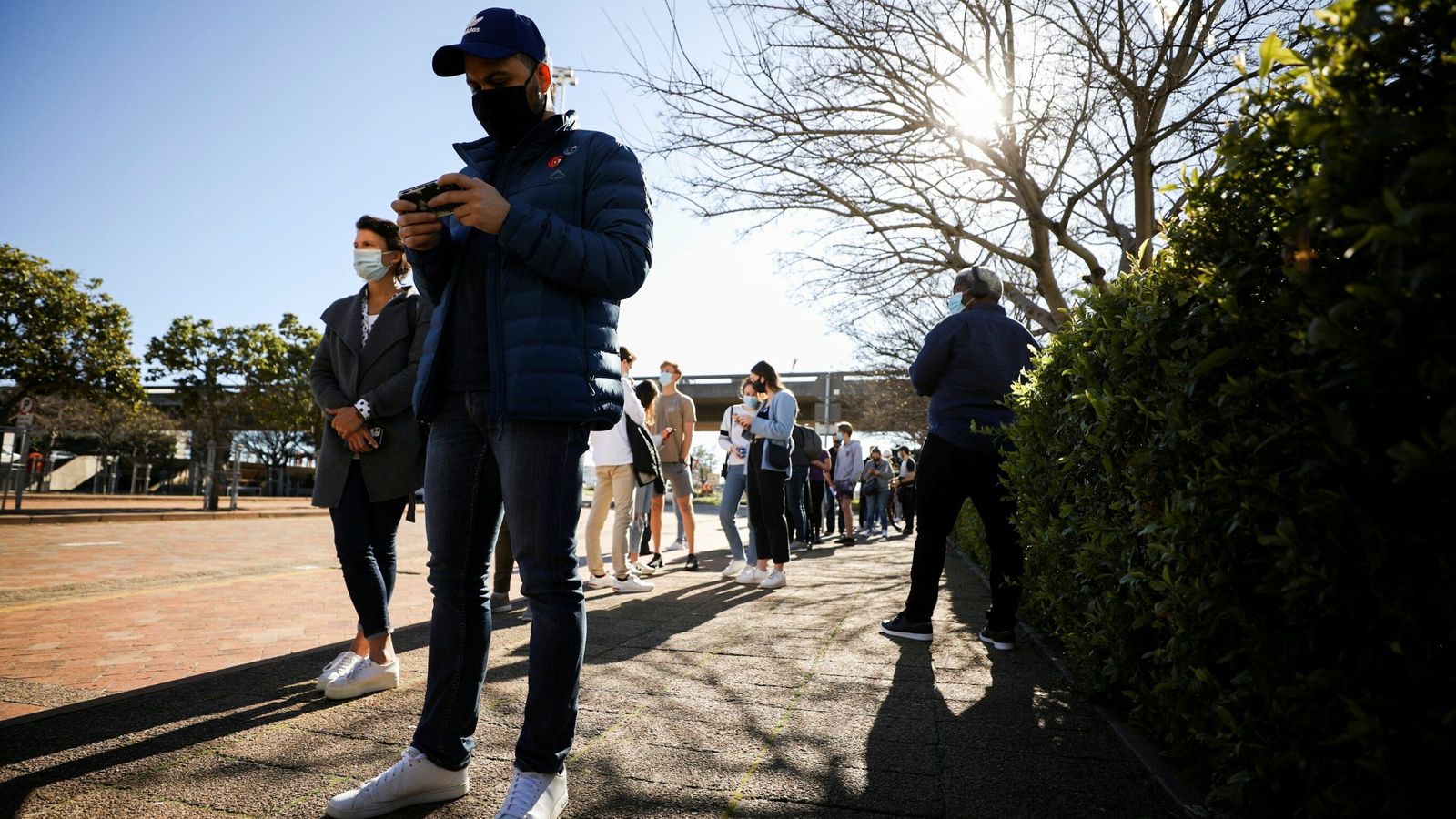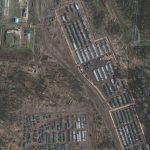The emergence of a new coronavirus variant with significant mutations to the spike protein may change nothing about the pandemic.
The jump in cases in the Gauteng province of South Africa has been linked to the B.1.1.529 variant, but it is not certain that it is more transmissible.
Epidemiologists might instead be looking at the results of a particularly potent super-spreader event, which makes it seem as if one variant is spreading faster than all the rest, when in fact it just happens to have infected one especially sociable host.
Please use Chrome browser for a more accessible video player
Even if the so-called Nu variant is more transmissible than existing strains, it is not bound to produce greater problems.
It might cause less, not more, serious illness. It might not escape the effects of vaccines.
Follow live updates on the new COVID variant
For various social and biological reasons, it might not spread away from Gauteng province, the way that another highly-transmissible South African variant, Beta, failed to catch hold in Europe.
COVID-19: ‘Devastated’ woman unable to see grandmother in late stages of dementia due to new travel restrictions
COVID-19: WHO says it’s time for countries to have ‘healthy debate’ about mandatory vaccination
COVID-19: Austria coronavirus lockdown feels not just like a health crisis, but also a cultural, social and political storm
It will take scientists some time to determine the real-world effects of Nu and until they do all these outcomes remain a possibility.
But, in the meantime, few believe we should be taking this news lightly.
They are thinking back to the situation in Kent a year ago when a surge of cases appeared which confounded epidemiological expectations.
This was the first sign of a new variant which was 50% as transmissible as the existing COVID strain. It was called the Alpha variant – and that winter its results were devastating.
Since then, of course, much has changed, above all the development of the vaccine – and it is their effectiveness which this new variant puts at risk.
Worryingly, Nu has a large number of mutations on the active part of the virus, the spike protein, which could undermine our bodies’ ability to manufacture the right kind of immune response.
It’s as if a previously reliable key has had its teeth twisted. It might still work in the door – but not as well, and not every time.
That does not mean that Nu will necessarily take us back to square one.
Scientists willing to speculate say it is unlikely that the new variant will completely escape immunisation provided by vaccination (or prior infection), especially given the apparent effectiveness of booster shots.
We also have the capacity to produce new vaccines made especially for the new variants. Pfizer said today it could design a new jab for Nu in six weeks and ship the first doses in 100 days.
What we do not have is a way of making sure that vaccines find their way to everyone in the world. There have been many fine words, but relatively little in the way of action.
Rich countries have been keeping vaccines for their own populations, ignoring the pleas of the World Health Organisation, which has begged them to postpone booster programmes in order to distribute stocks more widely.
Please use Chrome browser for a more accessible video player
In South Africa, about 41% of adults have received a single dose, with 35% of adults fully vaccinated, yet these rates are huge compared to the rest of sub-Saharan Africa, where less than 10% of the population has been vaccinated.
“This is not just unfair, it’s not just immoral, it’s prolonging the pandemic,” Maria Van Kerkhove of the WHO said recently.
“And it is resulting in people dying.”
That warning, made in September, looks particularly stark now the entire world is threatened with a new variant.
Experts have been saying for some time that rich countries were putting their own progress at risk by failing to support developing nations. Now that prophecy may have come bitterly true.
Please use Chrome browser for a more accessible video player
As always with COVID, the picture is complicated. Recently, South Africa asked Pfizer to delay deliveries because of the amount of stock that had built up as a result of people not coming forward for vaccines.
Misinformation about vaccines has spread very rapidly. Demand is an issue as well as supply.
It’s also not clear that vaccination will stop the emergence of new variants. One hypothesis often put forward states that new strains tend to pop up in places where there are lots of cases, yet while this is logical, it may not reflect the current situation.
South Africa has a low rate of diagnosed cases, yet it is possible that the new variant has emerged here rather than in, say, the UK, where case rates are far higher.
Follow the Daily podcast on Apple Podcasts, Google Podcasts, Spotify, Spreaker
If Nu did emerge in South Africa, rather than just being discovered there, then it points to a demoralising conclusion: that even greatly increased vaccination will not totally stop new variants emerging.
That is no reason not to do as much as possible, far more than is being done right now, and it does not mean vaccination cannot help enormously, especially if a truly global effort distributes vaccines around the world.
But it does suggest that we will be dealing with the twists and turns of COVID for some time to come – unless the epidemiological data delivers some unexpected good news.






















